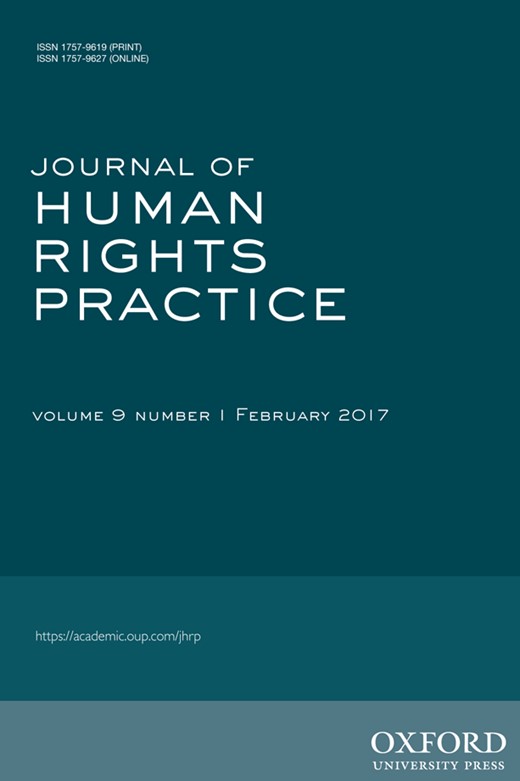-
Views
-
Cite
Cite
Ignacio Irazuzta, Silvia Rodríguez Maeso, Adriana M. Villalón, ‘Victims as Educators’: Sentimental Education in a Peace-Building Context, Journal of Human Rights Practice, Volume 9, Issue 1, February 2017, Pages 50–67, https://doi.org/10.1093/jhuman/hux004
Close - Share Icon Share
Abstract
This article analyses the emergence and institutionalization of the figure of the victim in the field of education in the post-conflict context of the Basque Country, Spain. Considering the wider political processes that have given political visibility to victims, we examine their social and political projection in the sphere of Compulsory Secondary Education through the ‘Victims as Educators’ Programme. Our analysis considers three elements: first, the theoretical discussion on ‘sentimental education’ in the field of human rights and, in particular, the tension between reason and feelings; second, the intellectual and political efforts that have gradually shaped government programmes that seek to generate ‘appropriate feelings’ in terms of fostering reconciliation and coexistence; and third, the construction of the figure of the ‘victim as educator’ characterized by a ‘resilient victim’ profile. Both the theoretical discussion and the analysis of the empirical case contribute to the debate on the universality of humanity, on human rights education, and on the increasingly central role of victims in peace-building policies.



